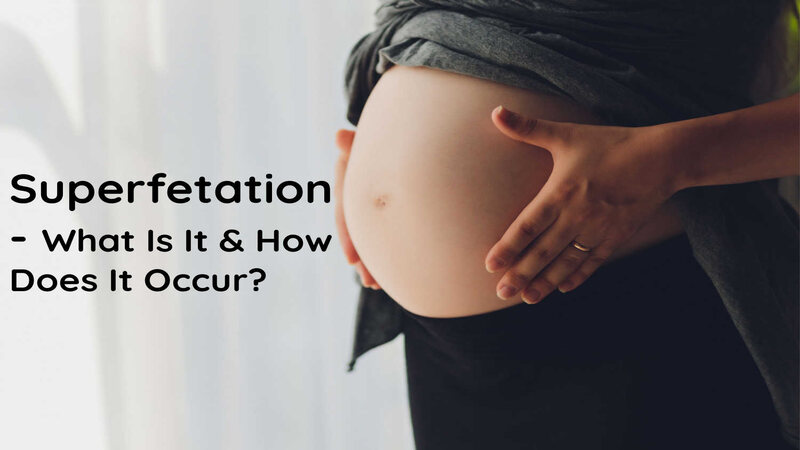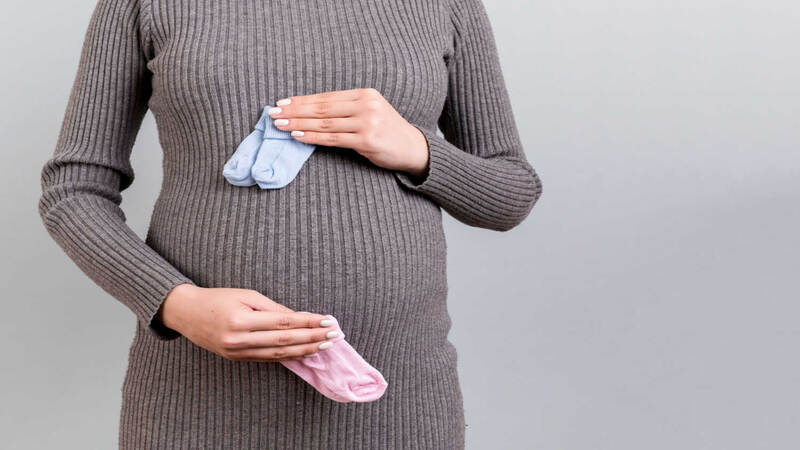
Superfetation is a rare medical condition where a woman conceives another baby when she is already pregnant with one. Only 10 cases in humans are found to be confirmed cases. (1)
The cases of superfetation are rare because the pregnancy hormones put a barrier in the ovulation process that prevents another egg to get fertilized. The ovary already contains a fertilized egg in the womb and it is difficult to fertilize another egg in the process of pregnancy. According to a research study, this phenomenon is defined as the fertilization and implantation of a second oocyte in a uterus already containing the product of a previous conception. (2)
What Is Superfetation?
Superfetation can be defined as the ovulation, fertilisation and implantation of a second or additional embryo(s) during pregnancy. It leads to the development of two embryos in two different menstrual cycles. The gestation period and the due dates for this situation are different as both the embryos or fetuses are conceived during different menstrual cycles.
There may be some confusion between Superfetation and Superfecundation. Superfecundation is a situation in which two separate instances of fertilization take place during the same menstrual cycle. But, some risks come along with superfetation in humans which is not present in superfecundation. E.g. the premature birth of the second baby, lung development problems, etc.
Babies born out of Superfetation are weeks apart in age. They are also different from twins as twins develop in the womb during the same menstrual cycle.
How Does Superfetation Happen?

This phenomenon happens when a woman is pregnant for the second time in the same gestational period. It is an occurrence when a second baby forms in the uterus with the already one baby present in it. You may conceive the second baby in three to four weeks of an already existing pregnancy.
It is an extremely rare occurrence in humans as now you know already. During pregnancy, the body hardly releases a second egg when already there is an implanted embryo in the uterus.
There is a possibility of superfetation happening in women who go through fertility treatments (3). As it rarely happens, you don’t have to worry much. Of course, you can take preventive steps to stop the occurrence of this phenomenon. If you are going through some medical fertility treatments, then before that do check if you are already pregnant. In that case, you don’t have to go for artificially inseminated pregnancy and can also avoid the chance of superfetation.
Is Superfetation Medically Possible?
You may wonder if it is possible to get pregnant when you are already pregnant. The answer is yes. But, that hardly happens. There are only a few recorded cases so far.
For this phenomenon to occur, it requires three things in all that are extremely rare to happen. They are as follows:
1. Ovulation During Pregnancy
It is very uncommon that you may ovulate during pregnancy because when you are pregnant, there are higher levels of progesterone that control your body from releasing another egg. This works against the natural phenomenon of pregnancy.
[Read : Does Ovulation Occur During Pregnancy?]
2. Sperm Has to Fertilize The Second Egg
If you ovulate and another egg is released during pregnancy, sperm has to fertilize that egg. But when you are already pregnant, the mucus in the cervix blocks sperm to get inside, which makes it difficult to conceive again.
3. Implantation of The Egg in The Uterus
It is very rare to implant the fertilized egg in the womb due to hormonal changes that occur due to the established pregnancy.
Is Superfetation Different From Usual Twins?

Superfetation and pregnancy with twins are similar to each other, but they are not the same. There is a major difference between the two. In superfetation, though the two fetuses share the same womb, develop together, and the delivery happens at the same time, it is not possible to form the embryos during the same menstrual cycle.
The first embryo will mature faster than the second embryo. But in twin pregnancies, there is the development of the embryos at the same time during the same menstrual cycle.
Risks Associated With Superfetation
Superfetation is very rare, but you should be aware of the risks and complications associated with the phenomenon.
Here are a few risks associated with this phenomenon
1. Risk of Babies Born Prematurely
When superfetation occurs the babies are two to three weeks age apart. When the first baby is ready to be born there is a high chance of the second or the younger baby to be born prematurely.
[Read : What is Premature Delivery]
2. Higher Medical Problems Due to Premature Birth
A baby born much before the due date is at a higher risk of having health problems like low birth weight, difficulties in movement, breathing difficulties, problems in feeding, brain hemorrhage or bleeding in the brain, underdeveloped lungs, etc.
3. Health Risks For Women
If you are carrying more than one baby during pregnancy, there are health risks like gestational diabetes and preeclampsia (which leads to high pressure).
4. The Difference in The Time of Delivery
Superfetation pregnancy requires C-section delivery, but the timing of both the delivery will differ as both the babies were conceived at different times.
The phenomenon of superfetation is controversial as it is extremely rare. Many still doubt if it is a reality or myth. It is difficult to confirm the cases of superfetation. The diagnosis of such cases is only possible after the delivery by executing chromosomal and metabolic studies on the baby. Still, the positive point is that there are extremely rare chances of this condition as it occurs only in a few women.
[Read : Emergency C-Sections]
FAQ’s
1. Can You Get Pregnant While You Are Already Pregnant?
Though it is less likely to happen still there are chances of getting pregnant while you are already pregnant. This phenomenon is called superfetation.
2. Is Superfetation Just Like Having Twins?
Superfetation and having twins have a few things in common, but they are not the same. The fetuses in superfetation are conceived at different times while twin babies are conceived in one menstrual cycle.
Read Also: What Should I Know When I Am Pregnant With Twins?
Reference
- Pape O, Winer N, Paumier A, Philippe HJ, Flatrès B, Boog G. Superfoetation: à propos d’un cas et revue de la littérature [Superfetation: case report and review of the literature]. J Gynecol Obstet Biol Reprod (Paris). 2008 Dec;37(8):791-5 – https://pubmed.ncbi.nlm.nih.gov/18667283/
- Tarín JJ, García-Pérez MA, Hermenegildo C, Cano A. Unpredicted ovulations and conceptions during early pregnancy: an explanatory mechanism of human superfetation – https://pubmed.ncbi.nlm.nih.gov/23043772/
- Amsalem H, Tsvieli R, Zentner BS, Yagel S, Mitrani-Rosenbaum S, Hurwitz A. Monopaternal superfecundation of quintuplets after transfer of two embryos in an in vitro fertilization cycle – https://pubmed.ncbi.nlm.nih.gov/11532493/
